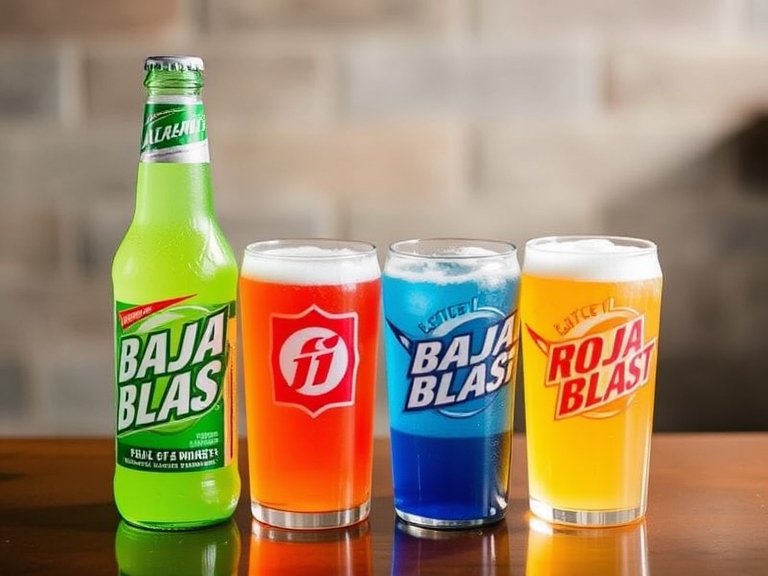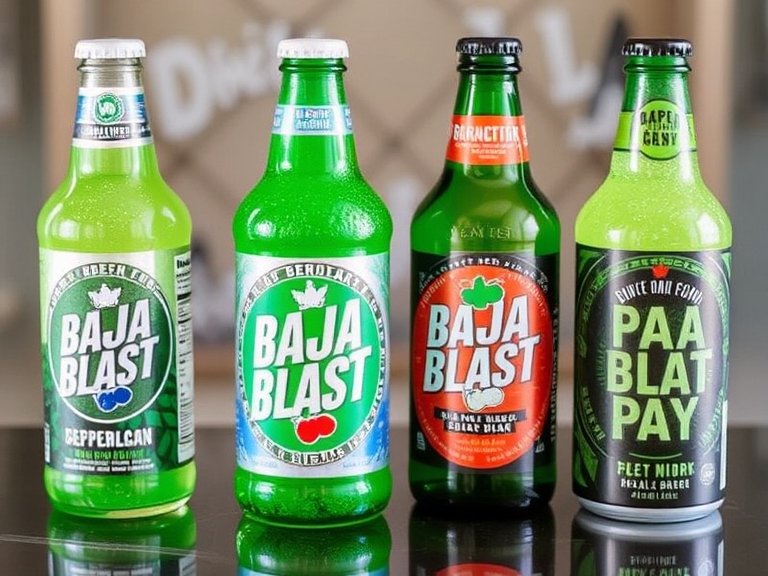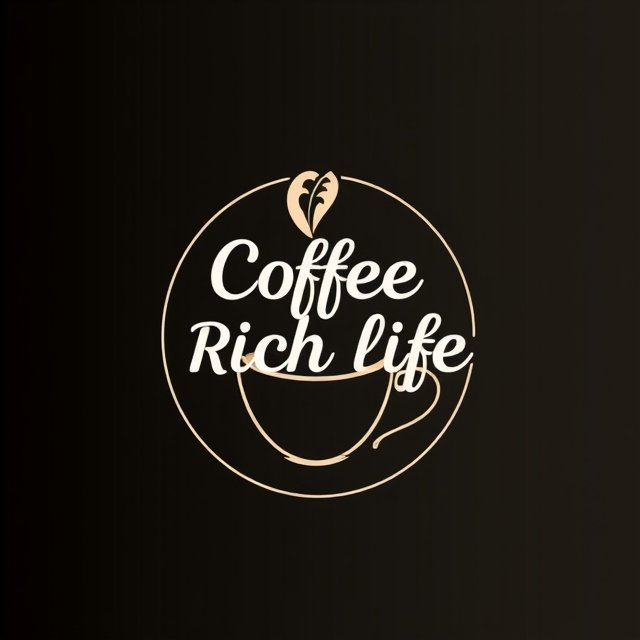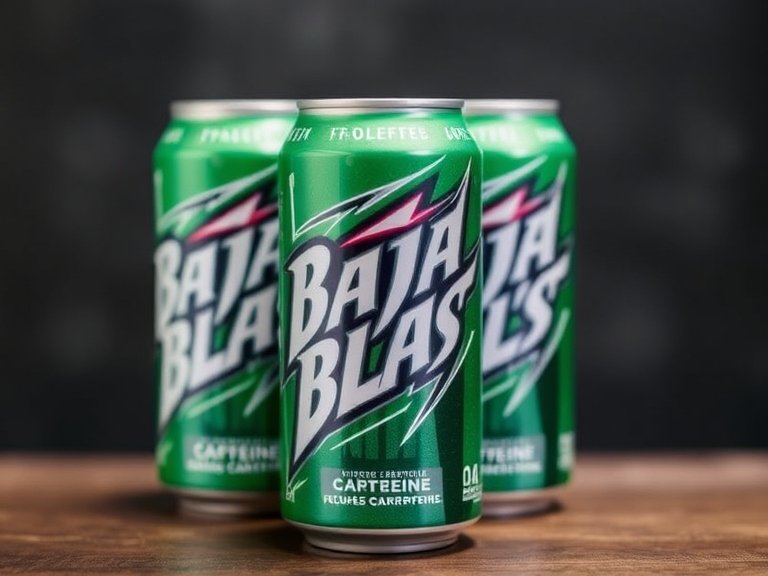Mountain Dew Baja Blast has become a beloved beverage since its exclusive launch at Taco Bell in 2004. Many fans wonder about its caffeine content and nutritional value.
Let’s dive deep into everything you need to know about this tropical lime-flavored drink.
What is Mountain Dew Baja Blast?
Baja Blast is a tropical lime-flavored soft drink created by Mountain Dew exclusively for Taco Bell restaurants. The drink features a unique blue-green color and a distinctive combination of lime and other tropical flavors.
Since its introduction in 2004, it has gained a loyal following among Mountain Dew enthusiasts.
Caffeine Content in Baja Blast
Yes, Baja Blast contains caffeine. Here’s a breakdown of caffeine content by serving size:
- 12 fl oz (360 ml): 54 mg caffeine
- 16 fl oz (473 ml): 72 mg caffeine
- 20 fl oz (591 ml): 90 mg caffeine
Baja Blast Variants and Their Caffeine Content
Different versions of Baja Blast offer varying levels of caffeine:
- Baja Blast Freeze: 36 mg per 12 oz
- Baja Blast Zero Sugar: 113 mg per 20 oz
- Baja Caribbean Splash: 91 mg per 20 oz
- Baja Passionfruit Punch: 91 mg per 20 oz
Nutritional Information
A standard 12 oz serving of Baja Blast contains:
- Calories: 170
- Total Fat: 0g
- Sodium: 55mg
- Total Carbohydrates: 44g
- Sugars: 44g
- Protein: 0g
Comparing Baja Blast to Other Beverages

Baja Blast vs. Coffee
- Coffee typically contains 80-100 mg of caffeine per 8 oz
- Coffee has fewer calories (without additives)
- Coffee offers potential health benefits
Baja Blast vs. Other Sodas
- Regular Mountain Dew: 54 mg caffeine per 12 oz
- Sprite/7-Up: No caffeine
- Diet Dr. Pepper: 36 mg caffeine per 12 oz
Baja Blast vs. Energy Drinks
- Red Bull: 80 mg caffeine per 8.4 oz
- Monster: 160 mg caffeine per 16 oz
- Baja Blast has significantly less caffeine than most energy drinks
Ingredients in Baja Blast
The main ingredients include:
- Carbonated water
- High fructose corn syrup
- Natural and artificial flavors
- Citric acid
- Sodium benzoate
- Caffeine
- Yellow 5 and Blue 1 food coloring
Health Considerations
Sugar Content
With 44 grams of sugar per 12 oz serving, Baja Blast exceeds the American Heart Association’s daily recommended sugar intake (36 grams) in just one serving.
Caffeine Intake
While Baja Blast’s caffeine content is moderate compared to energy drinks, consumers should be mindful of their total daily caffeine intake.
The FDA recommends limiting caffeine consumption to 400 mg per day.
Where to Buy Baja Blast
Baja Blast is primarily available at:
- Taco Bell restaurants (fountain drink)
- Select retail stores (limited-time releases)
- Special promotional periods
Alternatives to Baja Blast

For those seeking alternatives, consider:
- Mountain Dew (Original): 54 mg caffeine/12 oz
- Mello Yello: 51 mg caffeine/12 oz
- Sprite or 7-Up (caffeine-free options)
- Flavored sparkling water
Natural fruit juices
Frequently Asked Questions
Is Baja Blast an energy drink?
No, Baja Blast is a carbonated soft drink with moderate caffeine content, not classified as an energy drink.
Why is Baja Blast only at Taco Bell?
It was specifically created as an exclusive partnership between Mountain Dew and Taco Bell in 2004.
Does Baja Blast Zero Sugar have more caffeine?
Yes, Baja Blast Zero Sugar contains more caffeine (113 mg per 20 oz) than regular Baja Blast.
Is Baja Blast bad for you?
Like most sodas, it’s high in sugar and should be consumed in moderation as part of a balanced diet.
Can kids drink Baja Blast?
While not prohibited, parents should be mindful of the caffeine and sugar content when allowing children to consume Baja Blast.
Conclusion
Mountain Dew Baja Blast contains moderate caffeine (54 mg per 12 oz), making it more caffeinated than many sodas but less than energy drinks or coffee.
While its unique tropical lime flavor has made it a favorite among fans, consumers should be aware of its high sugar content and moderate caffeine levels.
As with all sugary beverages, Baja Blast should be enjoyed in moderation as part of a balanced diet.
Those monitoring their caffeine intake or seeking alternatives have numerous options, from caffeine-free sodas to naturally flavored sparkling waters.
Whether you’re a longtime fan or new to the beverage, understanding its nutritional content can help you make informed decisions about your drink choices.

